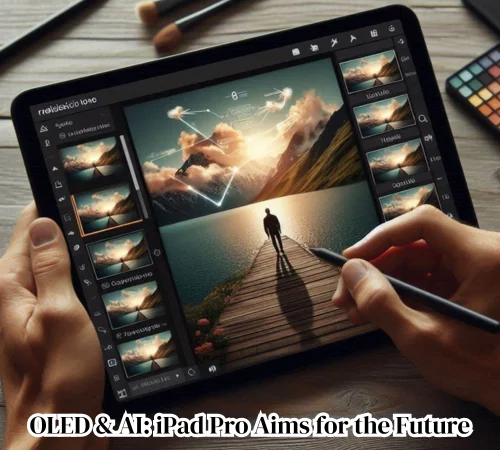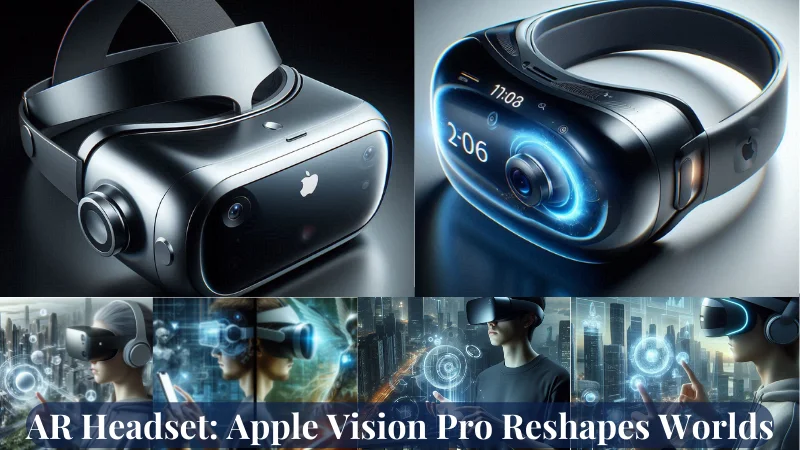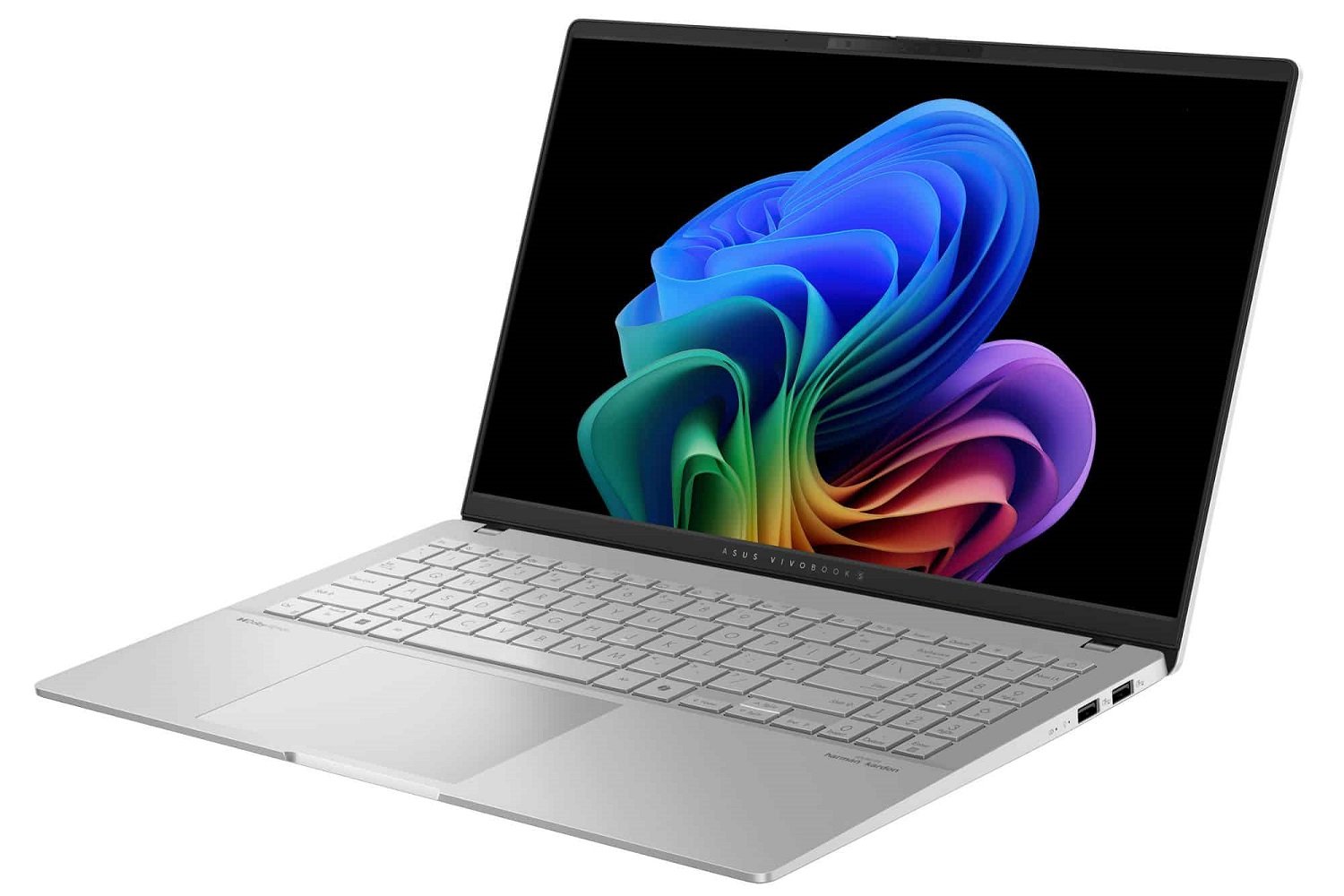The Future of Tablets with the M4 Chip and OLED Display

The Tablet Renaissance: Apple’s “Let Loose” Event and the Rumored AI-Powered iPad Pro! Remember the days when tablets were the hottest tech gadget? While their popularity has dipped in recent years, there’s a buzz brewing around the upcoming Apple iPad event on May 7, 2024, that suggests a potential game-changer. Rumors point towards a completely revamped iPad Pro, boasting an AI-powered M4 chip and a stunning OLED display.
This isn’t just an upgrade; it’s a potential revolution. Whispers suggest this iPad Pro might be Apple’s “first truly AI-powered device,” marking a significant shift in the tablet landscape. Imagine a tablet that anticipates your needs, enhances your creativity, and personalizes your entire experience: that’s the future Apple might unveil next week.
So, whether you’re a creative professional, a student seeking smarter learning tools, or simply someone who enjoys cutting-edge technology, the “Let Loose” event promises to be a turning point. Buckle up, because the next generation of tablets might just be here.
The Rise and Fall of the Tablet: A Tale of Two Eras
The tablet market once witnessed a meteoric rise. Remember the days when everyone seemed to be sporting an iPad or a similar device? These larger-than-phone, smaller-than-laptop screens offered a unique blend of portability and functionality, perfect for casual browsing, gaming, and media consumption. However, the tide has shifted in recent years. Tablet sales have experienced a steady decline, leaving many to wonder what went wrong.

Several factors contributed to this downturn:
- The Smartphone Revolution: As smartphones evolved, their screens grew larger and more powerful, blurring the lines between them and tablets. Smartphones became capable of handling many tasks that were previously the domain of tablets, from casual gaming to productivity.
- Stagnant Innovation: While smartphones continued to see significant advancements, the tablet market stagnated somewhat. Tablets often felt like glorified smartphones with bigger screens, lacking the groundbreaking features that would compel users to upgrade.
- Price Point Pressure: Tablets often occupy a price point between smartphones and laptops, making them a less attractive option for budget-conscious consumers.
Despite the overall decline, Apple’s iPad Pro has managed to carve out a niche as a premium tablet experience. By focusing on advanced hardware, professional software, and a more powerful user experience, the iPad Pro has catered to creative professionals, students, and those seeking a more robust alternative to a standard tablet.
However, the upcoming Apple event on May 7th hints at a potential paradigm shift. Rumors of an AI-powered M4 chip and an OLED display suggest that Apple might be ready to reinvigorate the tablet market, potentially ushering in a new era of intelligent and immersive tablet experiences.
Apple’s “Let Loose” Event: A Glimpse into the AI-Powered Future of Tablets?
The tech world is excited about Apple’s upcoming “Let Loose” event on May 7, 2024. Rumors suggest this event might be a watershed moment for the tablet market, with the iPad Pro potentially taking center stage as the first “truly AI-powered device” from Apple.
Instead of the expected M3 chip, reports from Bloomberg’s Mark Gurman hint at a surprise unveiling of the next-generation M4 chip within the iPad Pro. This M4 chip is rumored to boast a significantly enhanced Neural Engine, specifically designed to accelerate AI tasks. This marks a significant shift in focus for Apple, potentially signifying their official entry into the realm of AI-powered tablets.
The implications are far-reaching. By positioning the iPad Pro as its “first truly AI-powered device,” Apple might be setting the stage for a future where AI integration becomes a core feature across its entire product line. This could be further amplified at Apple’s Worldwide Developers Conference (WWDC) in June, where we might see even deeper AI integration within iOS 18 and other software updates.
This potential AI revolution in tablets isn’t just about processing power. It opens doors to a future where tablets can anticipate our needs, personalize our experiences, and unlock entirely new creative and productivity possibilities. The “Let Loose” event might just be the first chapter in a story that redefines the tablet as an intelligent and indispensable tool for the modern world.
AI-Powered Features and the Future of Tablets: A Glimpse into a New Era
Imagine a tablet that not only responds to your commands but anticipates your needs. This is the potential future ushered in by the rumored AI-powered iPad Pro. Here’s how AI features could revolutionize the way we use tablets across various domains:
Creative Work:
Enhanced Image and Video Editing: AI algorithms could analyze footage, recommend edits, and even perform automated tasks like color correction, noise reduction, and object removal. Imagine AI-powered tools suggesting the perfect crop for your photo or automatically stabilizing shaky video footage.
- Music Production: AI could analyze musical patterns, suggest harmonies and melodies, and even generate unique sound effects or beats based on your preferences. This opens doors for musicians to create complex compositions with minimal technical expertise.
Education and Learning:
- Personalized Learning Experiences: AI can tailor learning materials to individual student needs and learning styles. Imagine an iPad Pro that adapts the difficulty level of exercises, recommends relevant learning resources, and provides real-time feedback to optimize the learning process.
- Real-Time Language Translation: Imagine seamlessly translating textbooks, research papers, or even live lectures into your native language, breaking down language barriers and opening doors to global education.
Productivity and Collaboration:
- Smart Assistants and Dictation: AI-powered assistants could transcribe meetings, summarize documents, and even anticipate your next action, streamlining workflows and boosting productivity. Imagine dictating emails, notes, or even entire documents with near-perfect accuracy, saving you valuable time and effort.
- Advanced Search and Information Retrieval: AI can analyze vast amounts of data, providing relevant information and insights based on your current task or research. Imagine an iPad Pro that understands the context of your work and surfaces the most relevant articles, statistics, or data points without the need for extensive manual searches.
Entertainment and Gaming:
- Immersive Augmented Reality (AR): AI can create dynamic and interactive AR experiences that adapt to your environment and actions. Imagine playing games where virtual objects seamlessly blend with the real world, or exploring virtual museums with AI-powered guides that provide personalized historical context.
- Enhanced Content Creation: AI can personalize entertainment options, recommending movies, music, or games based on your preferences and past behavior. Imagine an iPad Pro that curates a unique entertainment feed, constantly suggesting new content that aligns perfectly with your tastes.
These are just a few examples of how AI could transform the way we use tablets. The possibilities are vast, with the potential to unlock entirely new creative avenues, revolutionize learning and education, and redefine the way we work, collaborate, and consume entertainment. The AI-powered iPad Pro, if it comes to fruition, could be the catalyst for a new era of intelligent and interactive tablets that seamlessly integrate into our lives, empowering us to achieve more and explore further than ever before.
The M4 Chip: Powering the Next Generation of iPad Pro Performance
The rumored M4 chip in the upcoming iPad Pro promises significant performance enhancements over its predecessors. Here’s what we might expect:
- Increased Processing Power and Graphics Capabilities: The M4 chip is likely to boast a significant increase in CPU and GPU performance compared to the M1 and M2 chips. This translates to smoother multitasking, faster app loading times, and the ability to handle demanding tasks like video editing, 3D modeling, and high-end gaming with greater ease.
- Improved Battery Life and Thermal Efficiency: The M4 chip is expected to be built on a more advanced manufacturing process, potentially leading to improved battery life and thermal efficiency. This means longer usage times on a single charge and less heat generation, even during intensive tasks.
- Support for More Demanding Applications and Multitasking: With its increased processing power, the M4 chip will pave the way for the development and utilization of more demanding applications on the iPad Pro. Imagine seamlessly running multiple professional-grade creative apps simultaneously without any lag or performance hiccups.
Comparison to Previous M Series Chips:
- M1 Chip: The M1 chip, introduced in 2021, marked a significant leap in performance compared to previous iPad processors. It brought significant improvements in CPU, GPU, and machine learning capabilities.
- M2 Chip: The M2 chip, a minor upgrade to the M1, offered further refinements in performance and efficiency but remained within the same generation.
Impact on User Experience:
The M4 chip, if it arrives as rumored, has the potential to revolutionize the user experience on the iPad Pro. With its enhanced processing power, users can expect a smoother, faster, and more responsive experience across all tasks, from casual browsing to professional workflows. This significant performance boost will further solidify the iPad Pro’s position as a powerful and versatile device capable of handling even the most demanding user needs.
The Apple Pencil with Haptic Feedback: A New Era of Digital Precision
Whispers about the next generation Apple Pencil point towards a groundbreaking feature: haptic feedback. This technology promises to revolutionize the drawing and writing experience on the iPad Pro, bridging the gap between the digital and the physical.
Haptic feedback works by producing subtle vibrations within the Apple Pencil itself. These vibrations can simulate the feeling of different textures and tools, creating a more natural and tactile experience. Imagine drawing with a pencil and feeling the resistance of the paper, or using a virtual brush that vibrates like its real-life counterpart.
Here’s how haptic feedback could enhance specific tasks on the iPad Pro:
Architectural and 3D Design:
- Simulating the feeling of different materials: Imagine sculpting a virtual object and feeling the resistance of clay or the smoothness of marble through the Apple Pencil. This haptic feedback could provide invaluable precision and control for detailed design work.
- Enhanced depth perception: Haptic feedback could create a sense of depth within 3D models, allowing designers to interact with virtual objects more intuitively and realistically.
Note-Taking and Annotations:
- Mimicking the feel of pen and paper: The Apple Pencil could vibrate subtly to simulate the friction of pen on paper, providing a more natural and familiar writing experience for note-taking and annotations.
- Pressure sensitivity with real-time feedback: Imagine the Apple Pencil responding to the pressure applied, providing haptic feedback that reflects the thickness or thinness of your digital strokes.
Artistic Creation and Sketching:
- Different brush textures: Imagine using a virtual brush that feels rough like a charcoal pencil or smooth like a watercolor brush, thanks to haptic feedback simulating the texture of the tool.
- Enhanced shading and blending: Haptic feedback could provide subtle resistance or guidance while shading or blending colors, allowing artists to achieve more nuanced and realistic effects.
These are just a few potential haptic feedback applications in the Apple Pencil. This technology can potentially transform how we interact with the digital world, blurring the lines between physical and digital tools and creating a more immersive and intuitive creative experience on the iPad Pro.
The AI-Powered iPad Pro: A Revolution in Tablets
The potential unveiling of an AI-powered iPad Pro with an M4 chip and OLED display marks a turning point in the history of tablets. This device, if it materializes, promises a revolutionary leap forward in performance, user experience, and creative potential.
The M4 chip, with its enhanced processing power and AI capabilities, could unlock entirely new possibilities for tasks like creative work, education, productivity, and entertainment. Imagine AI-powered tools suggesting edits, translating languages in real-time, or personalizing your learning experience – these are just a glimpse of what the future holds.
Furthermore, the rumored OLED display promises superior visuals, deeper blacks, and a thinner, lighter design. This, coupled with the haptic feedback in the Apple Pencil, could create an unparalleled level of immersion and precision for artists, designers, and note-takers.
The upcoming Apple “Let Loose” event on May 7, 2024, has the potential to redefine the tablet landscape. This AI-powered iPad Pro, if unveiled, could be the catalyst for a new era of intelligent and interactive devices that seamlessly integrate into our lives, empowering us to create, learn, and work in ways never before imagined. With anticipation high and rumors swirling, one thing is certain: the future of tablets is about to get a whole lot more exciting.



